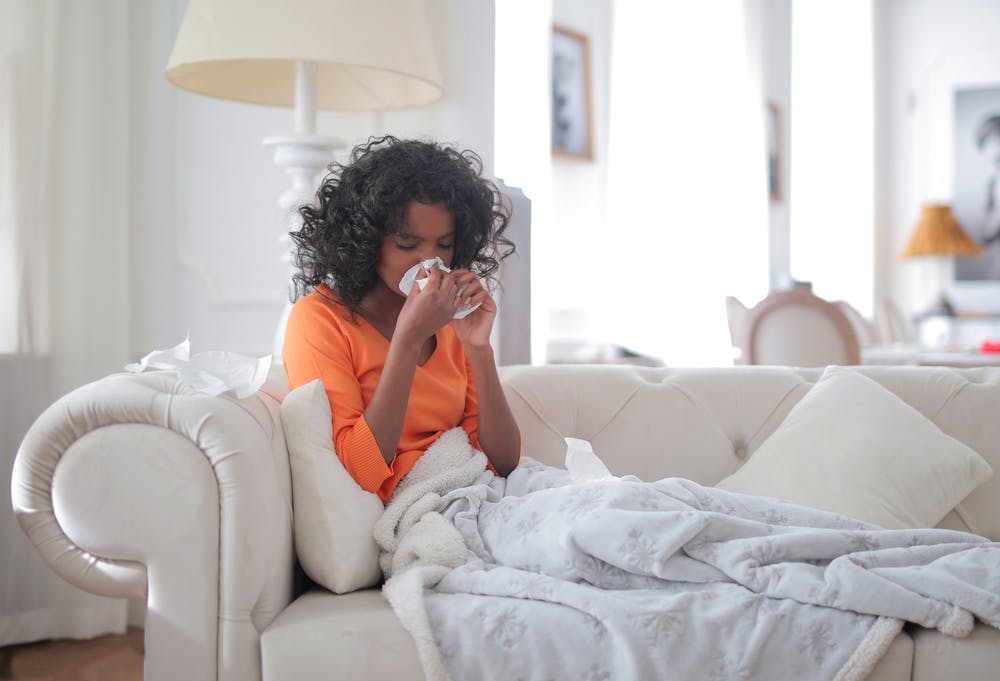Learning to deal with allergic rhinitis
Allergic rhinitis is the medical term for hay fever or allergies. You have an allergy when your body overreacts to things that don’t cause problems for most people. These things are called allergens. Your body’s overreaction to the allergens is what causes symptoms.
There are 2 forms of allergic rhinitis:
- Seasonal (hay fever): Caused by an allergy to pollen and/or mold spores in the air. Pollen is the fine powder that comes from flowering plants. It can be carried through the air and is easily inhaled.
- Perennial: Caused by other allergens such as dust mites, pet hair or dander, or mold. Symptoms occur year-round.
Hay fever is the most common form of allergy. Symptoms of hay fever are seasonal. You will feel worse when the pollens that affect you are at their highest levels.
Symptoms of allergic rhinitis
Your symptoms can vary, depending on the severity of your allergies. Symptoms can include:
- Sneezing.
- Coughing.
- Itching (mostly eyes, nose, mouth, throat and skin).
- Runny nose.
- Stuffy nose.
- Headache.
- Pressure in the nose and cheeks.
- Ear fullness and popping.
- Sore throat.
- Watery, red, or swollen eyes.
- Dark circles under your eyes.
- Trouble smelling.
- Hives.
Allergic rhinitis can last several weeks, longer than a cold or the flu. It does not cause fever. The nasal discharge from hay fever is thin, watery, and clear. Nasal discharge from a cold or the flu tends to be thicker. Itching (mostly in the eyes, nose, mouth, throat, and skin) is common with hay fever but not with a cold or the flu. Sneezing occurs more with hay fever. You may even have severe sneeze attacks.
Hay fever is an allergic reaction to pollen. Pollen comes from flowering trees, grass, and weeds. If you are allergic to pollen, you will notice your symptoms are worse on hot, dry days when wind carries the pollen. On rainy days, pollen often is washed to the ground, which means you are less likely to breathe it.
If your symptoms interfere with your daily life, see your family doctor. Your doctor will ask you questions about your symptoms and medical history and perform a physical exam. Keeping a record of your symptoms over a period of time can help your doctor determine what triggers your allergies.
Can allergic rhinitis be prevented or avoided?
Allergic rhinitis cannot be prevented. You can help your symptoms by avoiding the things that cause your symptoms, including:
- Keeping windows closed. This is especially important during high-pollen seasons.
- Washing your hands after petting animals.
- Using dust- and mite-proof bedding and mattress covers.
- Wearing glasses outside to protect your eyes.
- Showering before bed to wash off allergens from hair and skin.
You can also avoid things that can make your symptoms worse, such as:
- Aerosol sprays.
- Air pollution.
- Cold temperatures.
- Humidity.
- Irritating fumes.
- Tobacco smoke.
- Wind.
- Wood smoke.
Allergic rhinitis treatment
Several medicines can be used to treat allergies. Your doctor will help you determine what medicine is best for you depending on your symptoms, age, and overall health. These medicines help prevent symptoms if you use them regularly, before you’re exposed to allergens.
There are many medicines and treatments that can help you manage your symptoms. Talk to your doctor as soon as you feel that your symptoms are getting worse or are not easy to control. He or she can help you come up with the right plan to control them so they don’t affect your ability to live your normal life.

